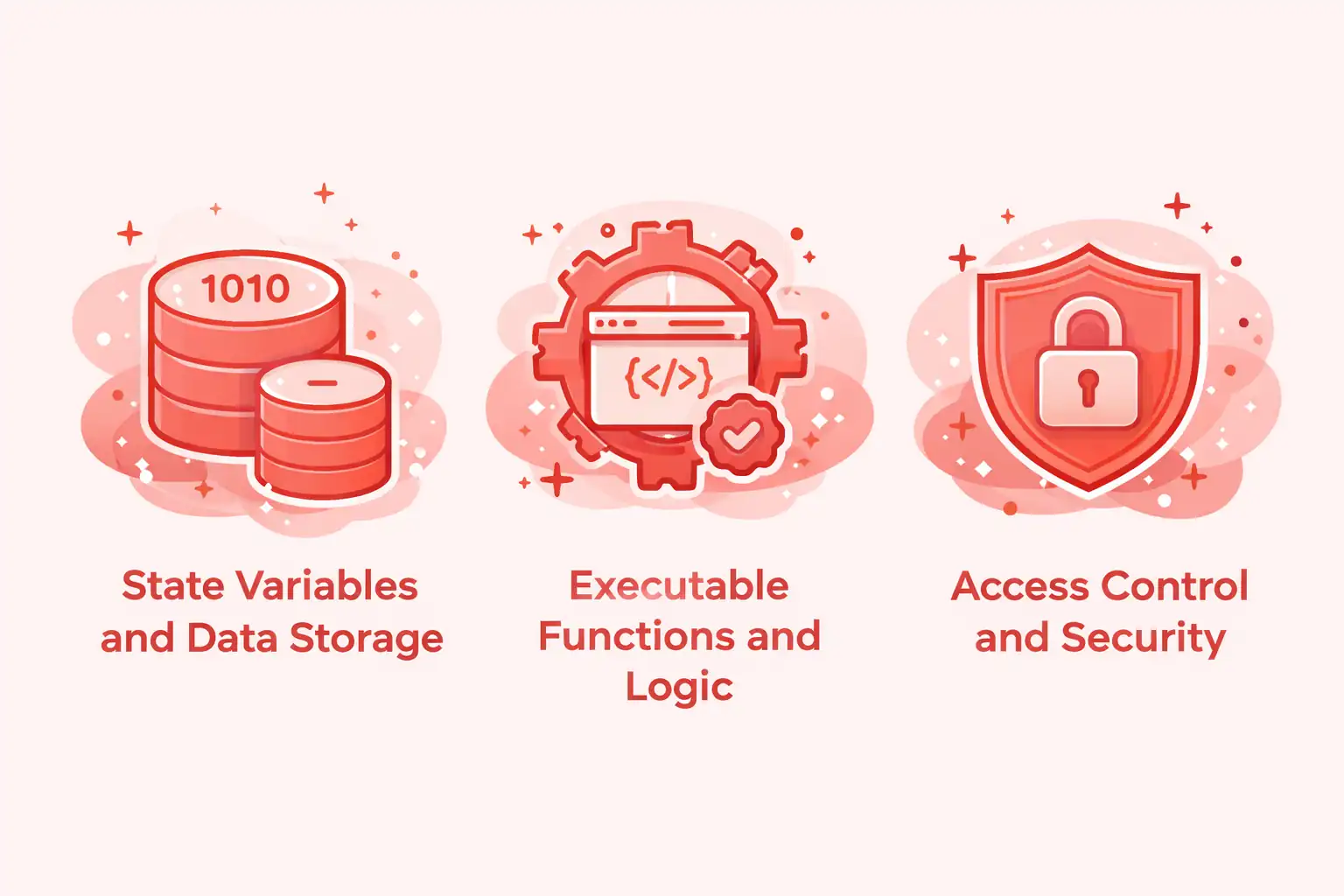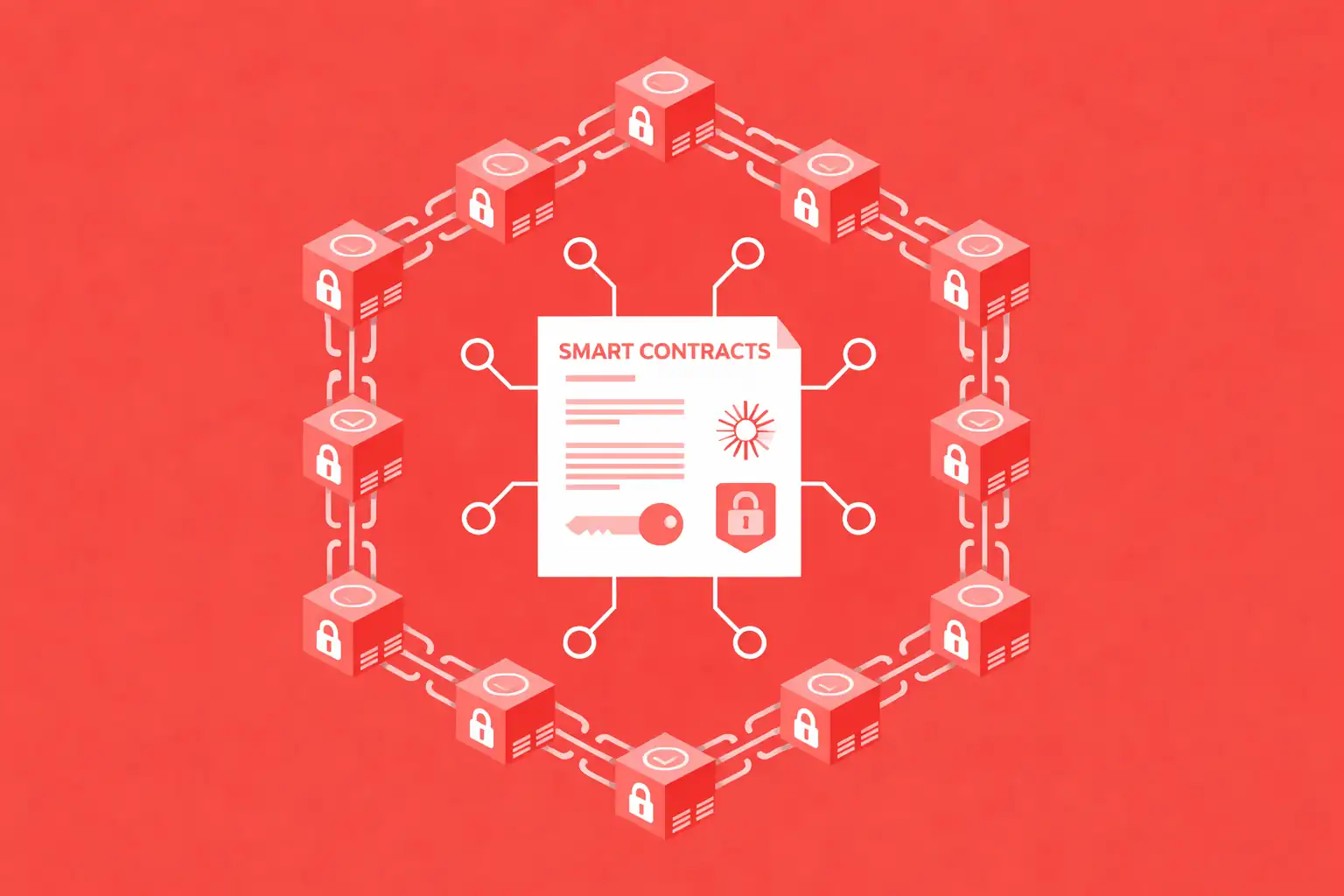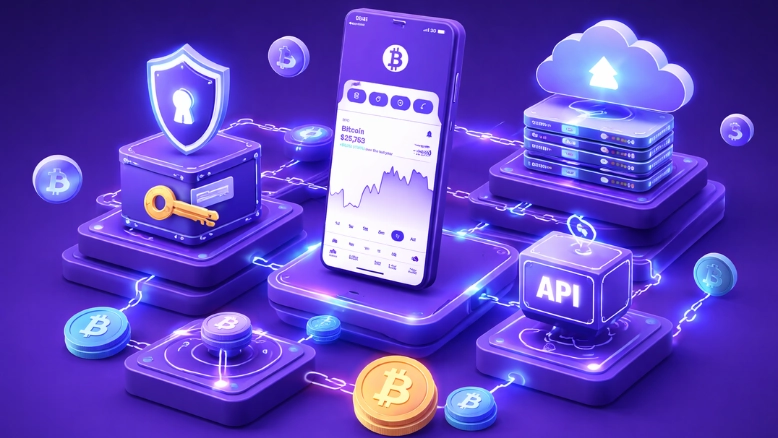Key Takeaways
- ▸DeFi smart contracts eliminate intermediaries in financial transactions, reducing costs by 60-80% while enabling 24/7 automated execution across USA, UK, UAE, and Canadian markets without requiring traditional banking infrastructure.
- ▸Transparency through public blockchain deployment allows anyone to verify DeFi smart contracts code and execution, creating unprecedented accountability compared to opaque traditional financial systems operating behind closed doors.
- ▸Immutability ensures DeFi smart contracts cannot be altered after deployment, providing security guarantees and preventing unauthorized modifications that plague centralized systems vulnerable to internal fraud and external manipulation.
- ▸Security audits from specialized firms costing $50,000-$300,000 identify vulnerabilities before deployment, with bug bounty programs offering rewards up to $10M incentivizing continuous security improvement across DeFi ecosystems.
- ▸Permissionless access through DeFi smart contracts enables global participation without geographic restrictions, credit checks, or minimum balance requirements, democratizing finance for billions excluded from traditional banking services worldwide.
- ▸Composability allows DeFi smart contracts to interconnect seamlessly, creating innovative financial products by combining lending, trading, derivatives, and yield optimization protocols into sophisticated automated investment strategies previously available only to institutions.
Introduction to DeFi Smart Contracts
Decentralized Finance has revolutionized global financial markets through self-executing DeFi smart contracts that automate complex transactions without intermediaries. With over eight years of experience developing blockchain solutions across USA, UK, UAE, and Canada, our agency has witnessed the transformative power of smart contracts eliminating traditional banking friction while enhancing security and transparency. The total value locked in DeFi protocols exceeded $100 billion in 2024, demonstrating institutional and retail confidence in smart contract technology.
DeFi smart contracts operate as immutable programs on public blockchains, primarily Ethereum, executing financial agreements automatically when predefined conditions are met. Unlike traditional contracts requiring lawyers, courts, and enforcement mechanisms, smart contracts are self-enforcing through cryptographic code that cannot be manipulated once deployed. This fundamental shift enables trustless transactions where parties interact directly without relying on centralized authorities, reducing costs, increasing speed, and democratizing access to sophisticated financial instruments.
What Are Smart Contracts in Decentralized Finance
DeFi smart contracts are programmable agreements written in languages like Solidity that automatically execute financial operations including lending, borrowing, trading, and asset management on blockchain networks. These contracts contain business logic, state variables storing data, and functions triggering specific actions when conditions are satisfied. Unlike traditional legal contracts requiring human interpretation and enforcement, smart contracts execute deterministically based on code, ensuring consistent outcomes regardless of external factors or human intervention.

Core Components of DeFi Smart Contracts
State Variables and Data Storage
- Store account balances and positions
- Track interest rates and price feeds
- Maintain governance parameters
- Record transaction history on-chain
- Enable persistent data across executions
Executable Functions and Logic
- Deposit and withdrawal operations
- Lending and borrowing mechanisms
- Token swapping and trading logic
- Interest calculation algorithms
- Emergency pause capabilities
Access Control and Security
- Role-based permission systems
- Multi-signature requirements
- Time-lock mechanisms for changes
- Reentrancy guards preventing attacks
- Owner and admin privilege management
Why Smart Contracts Are the Backbone of DeFi
DeFi smart contracts serve as the foundational infrastructure enabling trustless financial operations across global markets. Traditional finance relies on intermediaries like banks, brokers, and clearinghouses to facilitate transactions, verify identities, maintain records, and enforce agreements. Each intermediary adds costs, delays, and potential failure points while requiring users to trust centralized entities with funds and data. Smart contracts eliminate these intermediaries through cryptographically secured code that executes automatically and transparently.[1]
The composability of DeFi smart contracts creates unprecedented innovation opportunities as protocols interconnect seamlessly. A user in Dubai can deposit collateral into Aave, borrow stablecoins, swap them on Uniswap, provide liquidity on Curve, and stake LP tokens on Convex in a single transaction sequence. This financial Lego effect, impossible in traditional systems with siloed institutions, enables sophisticated strategies previously available only to hedge funds and institutional investors across USA, UK, and Canadian markets.
How DeFi Smart Contracts Eliminate Intermediaries
Intermediary elimination represents the core value proposition of DeFi smart contracts, reducing costs by 60-80% compared to traditional financial services. Banks charge fees for account maintenance, wire transfers, currency exchange, and credit services while requiring days for transaction settlement. DeFi smart contracts execute identical operations instantly at fraction of the cost, with users paying only blockchain transaction fees typically ranging from $1-$50 depending on network congestion.
Role of Automation in DeFi Smart Contract Execution
Automation through DeFi smart contracts eliminates human intervention in financial operations, enabling 24/7 execution without holidays, business hours, or geographic limitations. Traditional finance requires manual processing, approval workflows, and settlement procedures that introduce delays and errors. Smart contracts execute instantaneously when conditions are met, with interest accruing every block, liquidations triggering automatically when collateral ratios fall, and governance votes executing immediately after approval across USA, UK, UAE, and Canadian user bases.
Smart Contract Transparency on Public Blockchains
Transparency represents a fundamental advantage of DeFi smart contracts deployed on public blockchains where anyone can verify code, audit transactions, and monitor protocol health in real-time. Unlike traditional financial institutions operating behind closed systems with limited disclosure, DeFi protocols provide complete transparency. Every transaction, balance change, and contract interaction is publicly visible on blockchain explorers like Etherscan, enabling independent verification and creating unprecedented accountability in financial operations.
How Immutability Enhances Trust in DeFi Protocols
Immutability ensures DeFi smart contracts cannot be altered after deployment, providing security guarantees impossible in mutable systems. Once code is deployed on blockchain networks, no entity including developers can modify contract logic, change parameters, or access user funds without executing predefined upgrade mechanisms. This immutability creates trust as users know exactly what code will execute, eliminating risks of unauthorized changes, insider manipulation, or external interference that plague centralized financial systems.
| Security Feature | Traditional Finance | DeFi Smart Contracts |
|---|---|---|
| Code Modification | System updates without user consent | Immutable after deployment |
| Transaction Reversal | Possible with admin approval | Cryptographically impossible |
| Audit Transparency | Internal audits, limited disclosure | Public code verification anytime |
| Fund Access | Institution controls withdrawals | User maintains custody always |
| Operational Hours | Limited business hours | 24/7 global accessibility |
Security Mechanisms Embedded in DeFi Smart Contracts
Security mechanisms within DeFi smart contracts include multiple protective layers preventing unauthorized access, protecting against common attack vectors, and ensuring correct execution under all conditions. Access control modifiers restrict sensitive functions to authorized addresses, reentrancy guards prevent recursive call exploits, overflow checks ensure arithmetic operations remain within safe bounds, and time locks delay critical parameter changes allowing community review before execution across global DeFi ecosystems.
DeFi Smart Contract Security Audit Lifecycle
Pre-Audit Code Review
Internal team conducts comprehensive code review, implements security best practices, and prepares documentation for external auditors.
Third-Party Security Audit
Specialized firms conduct manual analysis, automated scanning, and formal verification identifying vulnerabilities across contract logic.
Bug Bounty and Monitoring
Launch bug bounty program offering rewards up to $10M, implement real-time monitoring, and maintain emergency response procedures.
Common Vulnerabilities and How Secure Contracts Mitigate Them
Common vulnerabilities in DeFi smart contracts have resulted in billions of dollars in losses, with major exploits including the 2016 DAO hack ($60M), 2020 bZx attacks ($1M), and 2021 Poly Network exploit ($600M). Reentrancy attacks allow malicious contracts to recursively call functions before state updates complete. Integer overflow/underflow causes calculation errors enabling unauthorized minting. Front-running exploits transaction ordering for profit. Oracle manipulation affects price feeds. Flash loan attacks leverage temporary massive capital for economic exploits across protocols.
On-Chain Verification and Auditing of DeFi Smart Contracts
On-chain verification allows anyone to examine DeFi smart contracts source code, verify bytecode matches audited versions, and monitor real-time execution on blockchain explorers. Platforms like Etherscan provide contract verification services where developers publish source code, enabling public inspection. Users across USA, UK, UAE, and Canada can review contract logic before interacting, check audit reports from firms like CertiK and Trail of Bits, examine transaction history, and verify protocol reserves match claimed amounts through on-chain analysis tools.
Permissionless Access Enabled by DeFi Smart Contracts
Permissionless access through DeFi smart contracts democratizes financial services by eliminating geographic restrictions, credit requirements, and minimum balance thresholds. Anyone with internet access and cryptocurrency wallet can participate in lending, borrowing, trading, and yield farming without providing personal information, passing credit checks, or obtaining institutional approval. This openness has enabled billions of unbanked individuals globally to access sophisticated financial services, while users in restrictive jurisdictions bypass capital controls and censorship.
Build Secure DeFi Smart Contracts with Expert Guidance
Leverage our 8+ years of blockchain expertise to develop audited, secure DeFi smart contracts. Get comprehensive development, security auditing, and deployment support.
Smart Contracts in DeFi Lending, Borrowing, and Trading
DeFi smart contracts power diverse financial applications with lending protocols like Aave and Compound enabling users to deposit assets earning interest or borrow against collateral. Decentralized exchanges like Uniswap and Curve facilitate token swaps through automated market makers. Derivatives platforms offer perpetual futures and options. Yield aggregators optimize returns across protocols. Each application operates through interconnected smart contracts executing complex financial logic autonomously across global markets.
| DeFi Application | Smart Contract Function | Key Protocols | TVL Range |
|---|---|---|---|
| Lending Platforms | Collateralized loans, interest accrual, liquidations | Aave, Compound, MakerDAO | $15B – $50B |
| Decentralized Exchanges | Automated market making, token swaps, liquidity pools | Uniswap, Curve, PancakeSwap | $10B – $40B |
| Yield Aggregators | Auto-compounding, strategy optimization, rebalancing | Yearn Finance, Beefy, Convex | $3B – $15B |
| Derivatives Platforms | Perpetual futures, options, synthetic assets | dYdX, GMX, Synthetix | $2B – $8B |
Governance and DAO Control Through Smart Contracts
Governance through DeFi smart contracts enables decentralized decision-making where token holders vote on protocol parameters, treasury management, and upgrade proposals. Decentralized Autonomous Organizations operate entirely through smart contracts executing governance decisions automatically. Voting power typically correlates with token holdings, with proposals requiring quorum thresholds and approval percentages. Time locks delay implementation allowing community review, while multi-signature requirements prevent unilateral changes by core teams across USA, UK, UAE, and Canadian communities.
Compliance, Monitoring, and Risk Reduction in DeFi
Compliance in DeFi smart contracts presents challenges as permissionless systems conflict with KYC/AML requirements in regulated jurisdictions. Some protocols implement optional compliance layers enabling institutional participation while maintaining permissionless base layers. Real-time monitoring tools track on-chain activity detecting suspicious patterns, unusual transactions, and potential exploits. Risk management includes circuit breakers pausing contracts during attacks, insurance protocols covering smart contract failures, and oracle redundancy preventing price manipulation across global financial markets.
Future of Secure and Transparent DeFi Smart Contracts
The evolution of DeFi smart contracts continues accelerating with institutional adoption, regulatory clarity, and technological improvements enhancing security and scalability. Layer 2 solutions like Arbitrum and Optimism reduce transaction costs while maintaining Ethereum security. Formal verification methods mathematically prove contract correctness. Zero-knowledge proofs enable privacy-preserving financial operations. Cross-chain bridges connect isolated ecosystems creating unified liquidity across blockchain networks serving global markets.
Our eight years of experience developing DeFi smart contracts across USA, UK, UAE, and Canada demonstrates that security, transparency, and user experience improvements will drive mainstream adoption. As auditing standards mature, insurance products expand, and user interfaces simplify, DeFi smart contracts will increasingly compete with and complement traditional finance. The convergence of blockchain technology, smart contract innovation, and regulatory frameworks creates unprecedented opportunities for secure, transparent, and accessible financial services democratizing global capital markets fundamentally.
Frequently Asked Questions
DeFi smart contracts are self-executing programs on blockchain networks that automatically enforce financial agreements without intermediaries. These contracts contain predefined rules and conditions written in code, typically using languages like Solidity on Ethereum. When specific conditions are met, the contract autonomously executes transactions such as lending, borrowing, trading, or yield distribution. Operating on public blockchains across USA, UK, UAE, and Canada markets, DeFi smart contracts ensure transparency, immutability, and trustless execution of complex financial operations while eliminating traditional banking intermediaries and reducing transaction costs significantly.
DeFi smart contracts ensure security through multiple layers including cryptographic verification, formal verification methods, comprehensive security audits, and immutable code deployment on blockchain networks. Security mechanisms include access controls, reentrancy guards, overflow protection, and multi-signature requirements for critical functions. Third-party audit firms conduct thorough code reviews identifying vulnerabilities before deployment. Once deployed, contracts cannot be altered, ensuring consistent execution. However, security depends on code quality, proper implementation of security patterns, regular audits, and bug bounty programs that incentivize vulnerability discovery across global DeFi ecosystems.
DeFi smart contracts provide numerous advantages including elimination of intermediaries reducing costs by 60-80%, 24/7 automated operation without human intervention, transparent execution visible on public blockchains, immutable code preventing unauthorized modifications, permissionless access enabling global participation, instant settlement eliminating multi-day clearing periods, and composability allowing protocols to interconnect. These benefits have driven explosive growth in USA, UK, UAE, and Canadian markets where traditional finance faces high friction. Smart contracts enable innovative financial products, democratize access to sophisticated investment strategies, and significantly reduce operational overhead while maintaining security and transparency.
Common vulnerabilities include reentrancy attacks where malicious contracts recursively call functions before state updates, integer overflow/underflow causing calculation errors, front-running where attackers exploit transaction ordering, access control failures allowing unauthorized actions, oracle manipulation affecting price feeds, flash loan attacks exploiting temporary massive capital, and logic errors in complex financial calculations. The 2016 DAO hack ($60M), 2020 bZx attacks ($1M), and 2021 Poly Network exploit ($600M) demonstrate real risks. Mitigation requires comprehensive audits, formal verification, battle-tested code libraries, bug bounties, insurance protocols, and continuous monitoring across DeFi ecosystems.
DeFi smart contracts undergo rigorous auditing through specialized firms like CertiK, Trail of Bits, and OpenZeppelin conducting manual code reviews, automated analysis, and formal verification. Auditors examine business logic, test edge cases, analyze gas optimization, verify access controls, and assess economic attack vectors. Comprehensive audits cost $50,000-$300,000 depending on complexity and typically require 3-6 weeks. Post-audit, projects implement recommended fixes and obtain certification reports. Leading protocols conduct multiple independent audits, maintain bug bounty programs offering $100,000-$10M rewards, and use on-chain monitoring tools detecting anomalous behavior ensuring ongoing security in USA, UK, UAE, and Canadian markets.
Reviewed & Edited By

Aman Vaths
Founder of Nadcab Labs
Aman Vaths is the Founder & CTO of Nadcab Labs, a global digital engineering company delivering enterprise-grade solutions across AI, Web3, Blockchain, Big Data, Cloud, Cybersecurity, and Modern Application Development. With deep technical leadership and product innovation experience, Aman has positioned Nadcab Labs as one of the most advanced engineering companies driving the next era of intelligent, secure, and scalable software systems. Under his leadership, Nadcab Labs has built 2,000+ global projects across sectors including fintech, banking, healthcare, real estate, logistics, gaming, manufacturing, and next-generation DePIN networks. Aman’s strength lies in architecting high-performance systems, end-to-end platform engineering, and designing enterprise solutions that operate at global scale.







